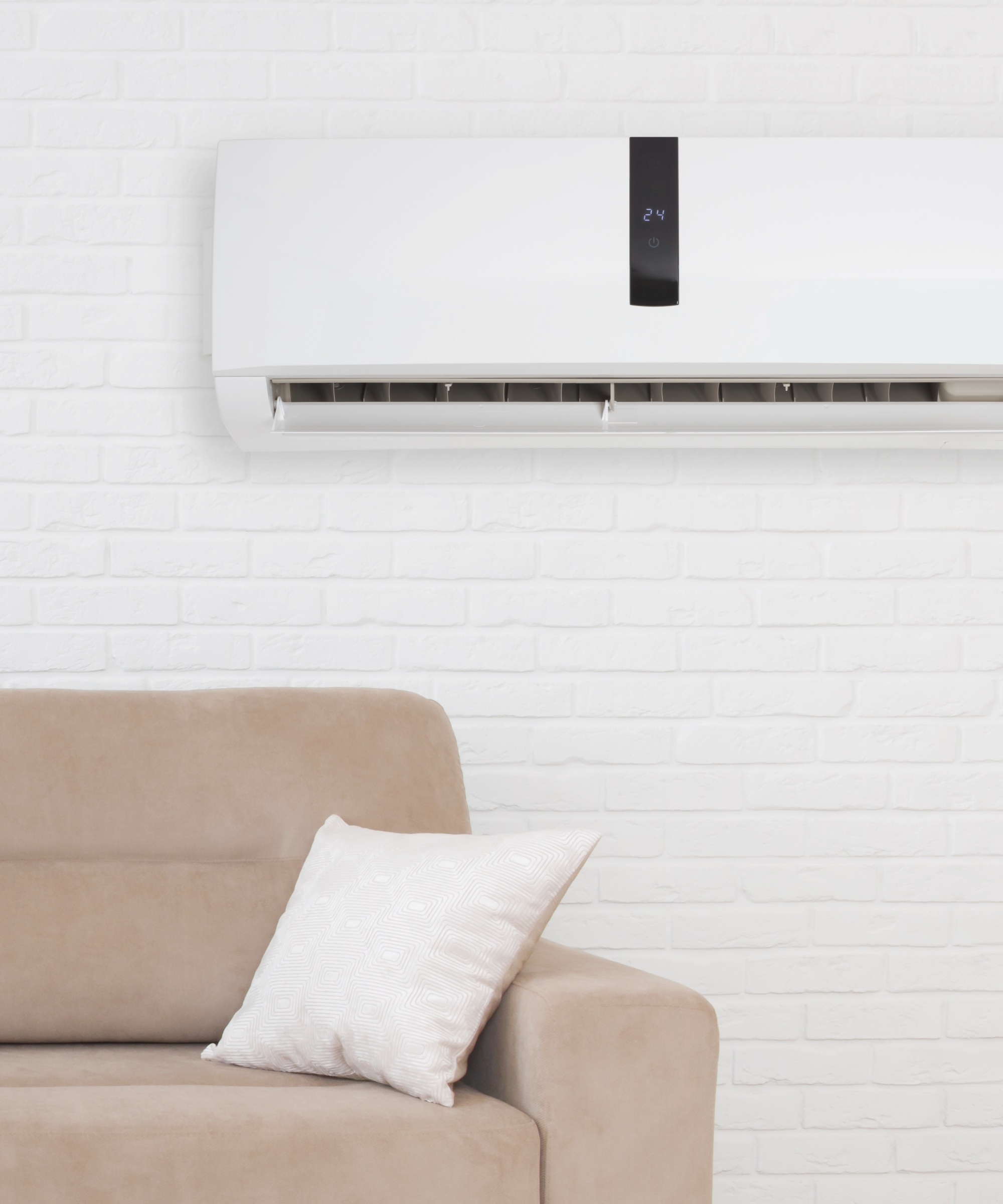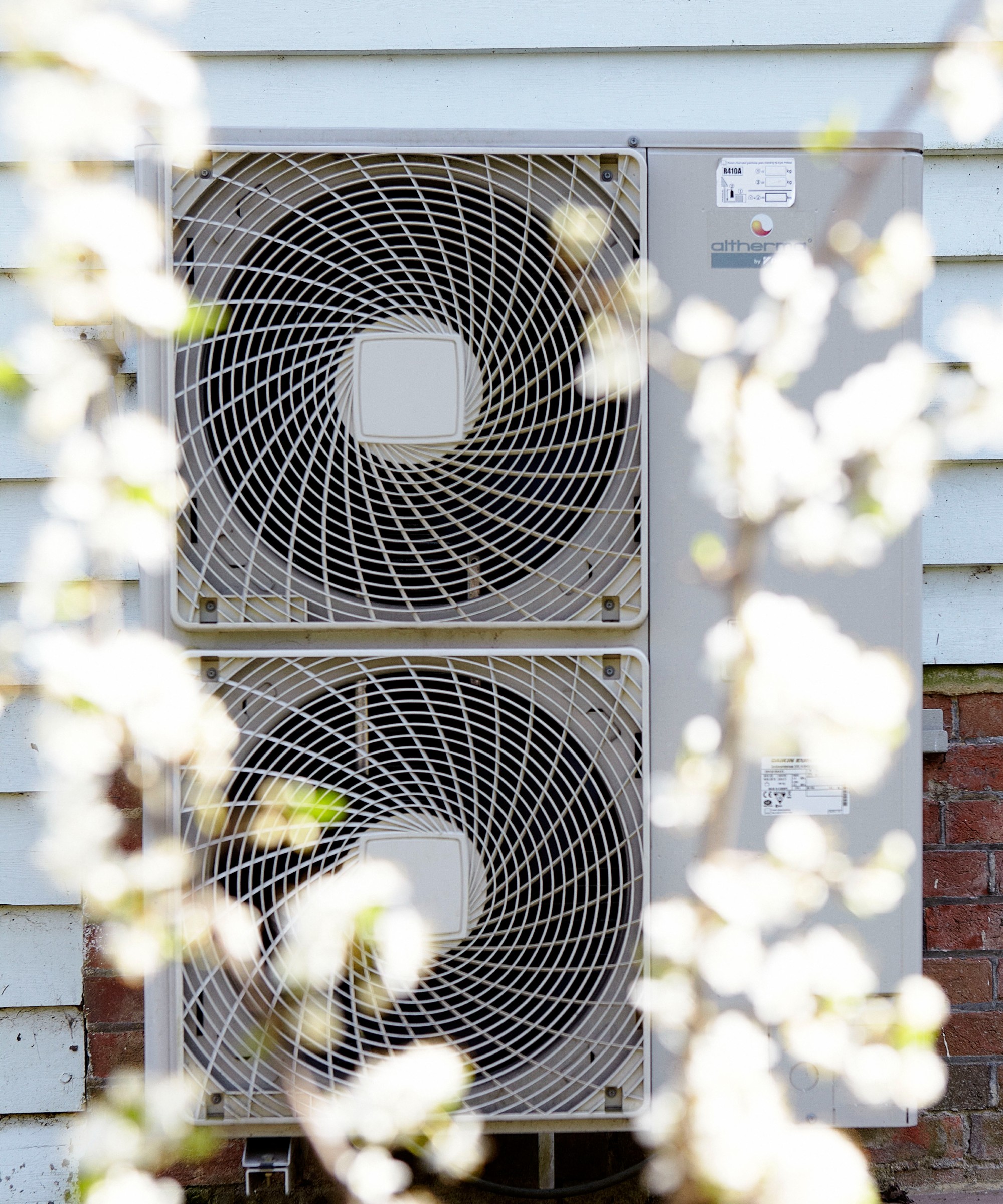
Suppose you've noticed unpleasant smells coming from your AC unit. This typically happens when there is excess moisture within the system, which can accrue due to poor drainage or clogged condensate lines.
Using an AC unit is one of the main ways of cooling down your home, so it's important to keep yours running as effectively as possible and to remove any unpleasant lingering odors from the unit. After all, everyone wants to have a nice-smelling home.
When you notice your AC unit smells, it's essential to promptly identify and address the cause to ensure your system runs efficiently, especially when the outdoor air quality is poor.
Reasons your AC unit smells
There are numerous reasons why an AC unit may begin emitting foul smells, and typically, it boils down to a few common culprits:
A Musty or Mildew Smell

This unpleasant, damp odor often indicates moisture buildup within your AC unit. Common causes include:
Clogged Drain Pan: The drain pan collects condensation from the cooling process. A clogged pan allows water to back up, creating a breeding ground for mold and mildew.
Dirty Air Filter: A clogged air filter restricts airflow and can trap moisture within the unit, promoting mold growth.
Leaking Ductwork: Leaks in your ductwork can allow moisture to seep in, creating a damp environment for mold and mildew to thrive.
What to do: For mold and mildew, Tony Abate, HVAC specialist at AtmosAir Solutions, suggests that you thoroughly clean all of the affected parts with a mold-inhibiting cleaner and ensure that all drainage systems are clear and functional. You can try using Method Antibacterial Bathroom Cleaner from Walmart to make sure the parts are cleaned and disinfected effectively. Regularly changing your air filter (every 1-3 months) and turning off your AC's fresh air intake is also essential for preventing these smells.
Burning Smells
A burning odor could indicate electrical problems or overheating within your AC unit. Here are some possibilities:
Overheated Motor: A failing motor, caused by lack of maintenance or clogged components, can overheat and emit a burning odor.
Electrical Issues: Worn-out wiring or faulty electrical components can cause burning smells and pose a fire hazard.
Burning Plastic Smell: This could indicate a burning belt or other internal components, potentially due to a malfunctioning part.
What to do: ‘For burning smells, disconnect your unit and contact an HVAC professional immediately to avoid any risk of fire,’ says Josh Mitchell HVAC technician and owner of Air Conditioner Lab. ‘If you suspect a gas leak, it's imperative to exit your home right away and contact your gas company or a professional.’
Regular AC maintenance can prevent these issues, so ensure your system is serviced at least once a year by a qualified technician. This proactive approach will keep unpleasant smells at bay.
A Rotten Egg Smell

If you notice a sulfuric, rotten egg smell, this could be a sign that a dead animal, such as a rodent, has become trapped in your ductwork.
What to do: Remove the carcass and thoroughly clean the affected area to prevent health hazards. Consider pest control measures to prevent future occurrences. Conducting thorough cleanings and sealing potential entry points with XFasten Self Fusing Silicone Tape Black from Amazon to prevent further pest entry.
A Sewer-like Smell
This pungent odor can signify sewage line issues that could be affecting your AC system:
Drain Line Backup: A clogged drain line can cause sewage odors to back into your home, including through the AC vents.
Venting Issues: Improper venting of your AC unit or plumbing system can allow sewer gas to escape your home.
What to do: Contact a licensed plumber to examine your drain line and a qualified HVAC technician to inspect the AC venting system for any deficiencies.
Cleaning Product Smell

Strong chemical or cleaning product odors can sometimes get sucked into your AC system.
Recent Use of Cleaning Products: Using strong cleaning products near your AC unit can cause those odors to circulate through the vents.
Outdoor Chemical Exposure: Living in an area that frequently uses pesticides or industrial chemicals can actively draw those odors into your AC system.
What to do: Ensure proper ventilation when using strong cleaning products and avoid storing them near your AC unit. If you suspect outdoor chemicals are the culprit, consider changing your air filter with these Simply Filters from Amazon to trap those odors more effectively.
Smells can also emanate from mechanical issues; for example, a worn-out belt or motor can produce a distinct burning rubber smell. Swift, professional intervention is crucial in such scenarios to prevent further damage to the unit.
It's imperative to not overlook any strange smells and to implement a regular routine
for inspections and maintenance. This ensures not only the air quality of your home but also the longevity and performance of your AC unit.







